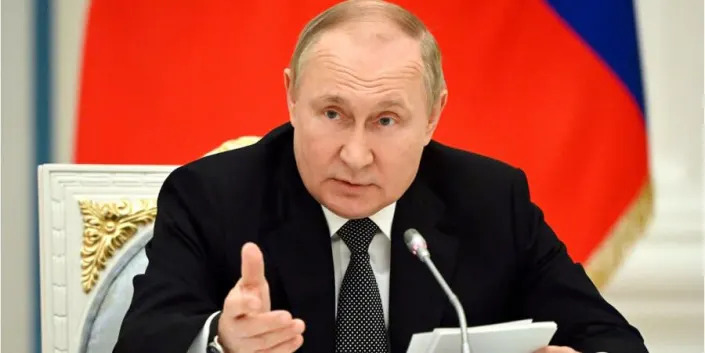The Hill
Russia likely experiencing ‘devastating’ losses of mid-level officers, UK says
Mychael Schnell – May 30, 2022

The United Kingdom’s defense ministry on Monday said Russia has likely experienced “devastating” losses among its mid- and junior-level military officers during its invasion of Ukraine.
“Russia has likely suffered devastating losses amongst its mid and junior ranking officers in the conflict,” the ministry wrote in an intelligence update posted on Twitter.
“Brigade and battalion commanders likely deploy forwards into harm’s way because they are held to an uncompromising level of responsibility for their units’ performance. Similarly, junior officers have had to lead to the lowest level tactical actions, as the army lacks the cadre of highly trained and empowered non-commissioned officers (NCOs) who fulfill that role in Western forces,” it added.
The intelligence update comes more than three months after Russia launched its invasion of Ukraine. Russia has gained control of a number of regions, namely the Luhansk and Donetsk areas, the BBC noted, but Ukraine has defended other regions from the offensive.
The U.K. on Monday said Russia’s significant loss of its “younger professional officers will likely exacerbate its ongoing problems in modernising its approach to command and control.”
“More importantly, battalion tactical groups (BTGs) which are being reconstituted in Ukraine from survivors of multiple units are likely to be less effective due to a lack of junior leaders,” the ministry added.
Additionally, the British intelligence said the decreased number of “experienced and credible” personnel will likely lead to a decrease in morale, in addition to poor discipline.
“With multiple credible reports of localise mutinies amongst Russia’s forces in Ukraine, a lack of experienced and credible platoon and company commanders is likely to result to a further decrease in morale and continued poor discipline,” the intelligence update reads.
NATO Secretary General Jens Stoltenberg last week said Russian President Vladimir Putin “made a big, strategic mistake” when he launched an invasion of Ukraine, which sparked the beginnings of a NATO expansion, with Finland and Sweden looking to join the military alliance.
Both countries have submitted written applications to join the 30-member bloc.
“I will not speculate about his feelings, but he made a big, strategic mistake,” Stoltenberg said at the World Economic Forum in Davos, Switzerland.
“One of the stated purposes with this invasion of Ukraine was to get less NATO on Russia’s borders. … And now he gets more NATO enlargement,” he added.









